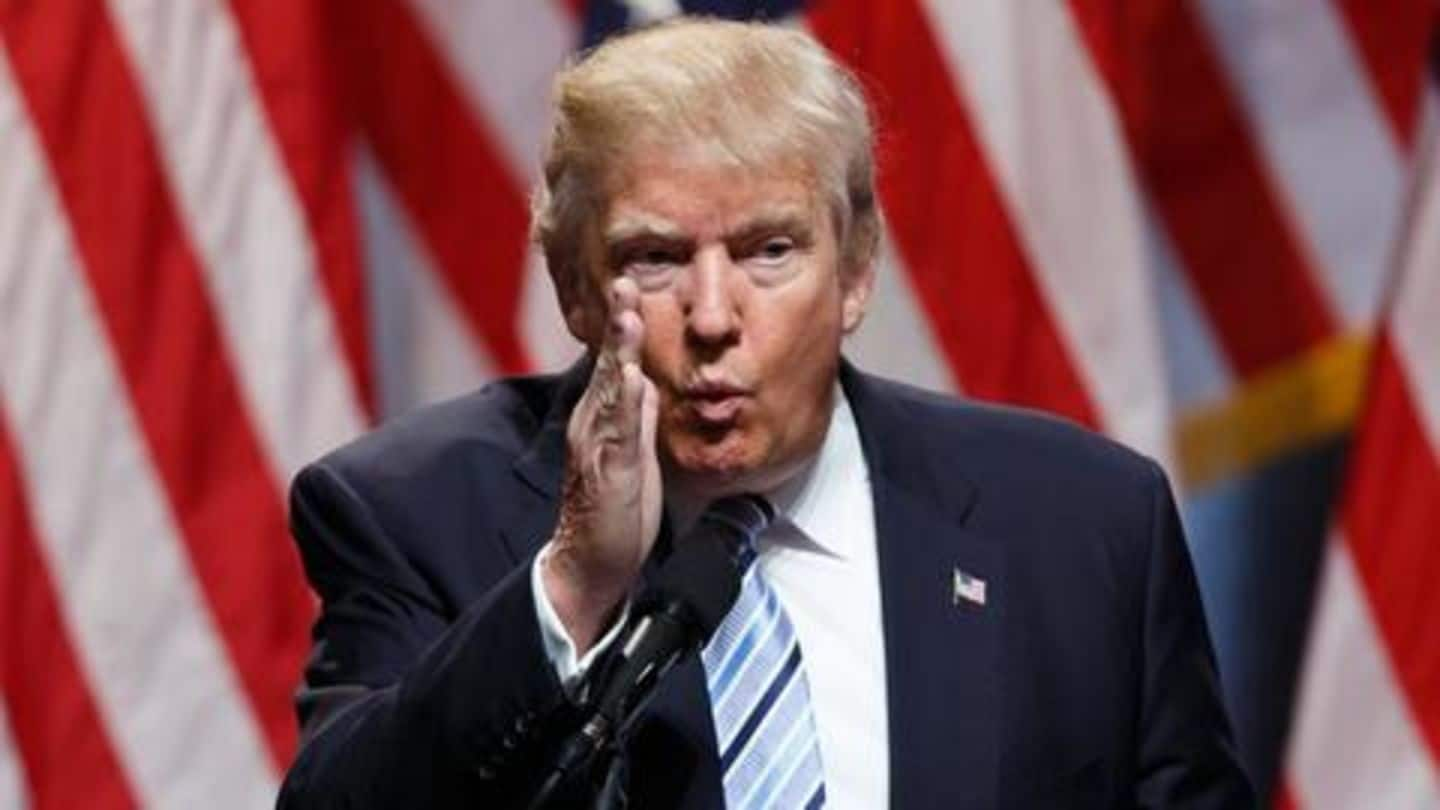
Trump announces major H-1B changes, including path to citizenship
What's the story
On Friday, US President Trump announced that major changes would be made to the H-1B visa program that is widely used by Indian IT professionals and Indian IT firms.
While Trump did not offer details or a timeline for the changes to be implemented, he said that his administration would welcome highly skilled people and provide them with a path to citizenship.
Here's more.
Details
What Trump had to say about the changes
The President's announcement came via his favorite medium - Twitter.
In his tweet, Trump said that his administration wanted to "encourage talented and highly skilled workers" to come and work in the US, and that authorities were going to effect changes to the H-1B program to bring "simplicity and certainty" to H-1B workers' stay in the US.
Twitter Post
READ: Trump's tweet about the 'major changes'
H1-B holders in the United States can rest assured that changes are soon coming which will bring both simplicity and certainty to your stay, including a potential path to citizenship. We want to encourage talented and highly skilled people to pursue career options in the U.S.
— Donald J. Trump (@realDonaldTrump) January 11, 2019
Earlier
It's unclear whether the announcement refers to an earlier proposition
Earlier in December, the Trump administration had proposed major changes to the H-1B application process in a bid to award the visa to the most skilled and the highest paid foreign workers.
The proposition was then put out for public comments, and the last date for submission of comments was January 2.
It is unclear whether Trump's announcement refers to the December proposition.
Proposition
An overview of the December proposition
The December proposition requires companies employing people through the H-1B route to electronically register with the US Citizenship and Immigration Services (USCIS) during a designated registration period.
Further, it seeks to reverse the order in which the H1-B visa lottery is carried out.
Annually, the US awards 65,000 H-1B visas, and an additional 20,000 visas are awarded to advanced degree-holders educated in the US.
Information
H-1B visas are awarded through a lottery process
Since the number of applicants far exceed the annual H-1B quota, the USCIS allots H-1B visas through a random lottery process. In 2018-19, 1.9 lakh H-1B visa applications had been filed. Interestingly, Indians typically secure around 60% of H-1B visa allotments.
Lottery
Proposed changes to the lottery system
Under the current lottery process, the USCIS randomly selects 20,000 applicants from a pool of US advanced degree holders, then puts remaining applications in the larger pool, and randomly selects 65,000 applicants.
However, under the new process, all applicants would first be put in the same pool, and 65,000 applicants would be randomly selected. Then, all unselected US advanced degree-holders would be put into the pool reserved for them, and 20,000 applicants would be selected.
Implications
What the proposed changes mean for H-1B applicants
According to the Department of Homeland Security (DHS), the new process would lead to an increase of 16% in the number of selected H-1B beneficiaries who hold a master's degree or more advanced degrees from an educational institute in the US.
However, according to USCIS estimates, the changes would result in a 3% increase in the number of H-1B visas going to such applicants.
Indians
Some Indians could benefit if the proposal is passed
If the proposal is accepted, Indians could benefit from the preferential treatment that would be given to US-educated advanced degree holders.
As of now, 95,651 Indians are pursuing advanced degrees in the US, and 75,390 Indians are engaged in practical training after graduation.
Given the new preference for US advanced degree holders, US-educated Indians could get a chunk of the new H-1B visa allotments.